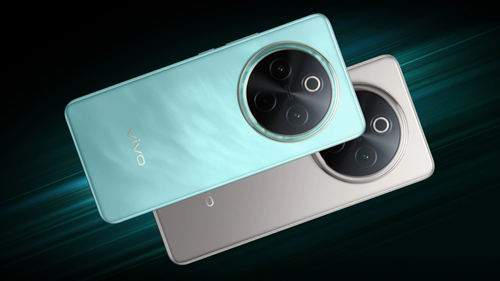Ad
Articles
7 Common AC Mistakes That Increase Your Electricity Bill in India

As India's summers get hotter each year, air conditioners (ACs) have become a must-have in many homes. From the scorching heat in Delhi to humid days in Mumbai, ACs offer relief. But they also push up electricity bills. In 2025, with rising power costs—average tariffs around Rs. 6-8 per unit in major cities—many families see bills jump by Rs. 2,000-5,000 monthly during peak summer. The good news? Simple changes can cut these costs.
This article dives into seven common mistakes that make your AC guzzle more power. We'll explain why they happen, how they add to your bill, and easy fixes with real examples. Plus, a buying guide to pick energy-smart ACs. Based on expert tips and user experiences, this guide aims to help you stay cool without burning a hole in your pocket. Let's start saving!
Mistake 1: Setting the Thermostat Too Low
Many people crank their AC to 18-20°C thinking it cools faster. But this is a big error. ACs work by removing heat until the room hits the set temperature. A lower setting makes the compressor run harder and longer, using more electricity.
In India, where outdoor temps hit 40°C+, this can spike your bill by 20-30%. For a 1.5-ton AC, running at 18°C might cost Rs. 10-15 per hour, versus Rs. 7-10 at 24°C. That's extra Rs. 500-1,000 monthly for a family in Chennai using AC 8 hours daily.
Suggestion: Set to 24-26°C, the Bureau of Energy Efficiency (BEE) ideal for comfort and savings. Use the 'auto' mode to let the AC adjust. Example: Raj in Bengaluru switched from 20°C to 24°C and saved Rs. 800 on his June bill. Pair with light clothes or a fan for better feel. This simple tweak can reduce energy use by 6% per degree higher.
Mistake 2: Neglecting Regular Maintenance
Dust and dirt build up in AC filters and coils, especially in polluted cities like Delhi or Kolkata. A dirty filter blocks airflow, forcing the AC to work overtime. This raises power use by up to 15-20%, adding Rs. 300-600 to monthly bills.
Without cleaning, efficiency drops, and parts wear out faster. In humid areas, mold can form, worsening air quality and energy waste.
Suggestion: Clean filters every 15-30 days. Get professional servicing twice a year—before and after summer. Example: Priya in Mumbai noticed her bill rose to Rs. 4,500 last summer. After cleaning the filter, it dropped to Rs. 3,200. Use a vacuum or water rinse for filters. Check outdoor unit for debris too. This keeps your AC running smooth and saves up to 10% on power.
Mistake 3: Choosing the Wrong AC Size for Your Room
Buying an undersized or oversized AC is common. Too small, and it runs non-stop; too big, it cycles on-off quickly, wasting energy on starts. In India, wrong sizing can increase bills by 10-25%, as per BEE guidelines.
For a 150 sq ft room, a 1-ton AC works; but for 200 sq ft, you need 1.5-ton. Oversized units don't dehumidify well, making rooms feel clammy.
Suggestion: Calculate based on room size, sunlight, and occupants. Use online tools or consult dealers. Example: Amit in Hyderabad had a 2-ton AC in a small bedroom, bill at Rs. 3,000/month. Swapping to 1-ton saved Rs. 700. Factor in ceiling height and insulation for accuracy. Right size means steady cooling and lower costs.
Mistake 4: Leaving Doors and Windows Open
Open gaps let cool air escape and hot air in, making your AC fight harder. In India's tropical climate, this can waste 20-30% energy, hiking bills by Rs. 400-800 monthly.
Even small cracks under doors add up, especially in windy areas like coastal Chennai.
Suggestion: Seal gaps with weather strips or door sweeps. Close curtains during day to block sun. Example: Sneha in Pune sealed her windows and saw her bill fall from Rs. 5,000 to Rs. 3,800 in July. Use exhaust fans sparingly. Good insulation keeps cool in, saving power year-round.
Mistake 5: Not Using Ceiling Fans with Your AC
Fans are often ignored when AC is on, but they help spread cool air. Without them, AC runs longer to cool evenly, using 10-15% more power.
In India, where fans are cheap, combining them lets you raise AC temp by 2-3°C, cutting bills.
Suggestion: Run fan on low speed with AC. Set fan to push air down in summer. Example: Kumar in Bangalore used both and raised temp to 25°C, saving Rs. 600/month. Fans cost little to run—Rs. 1-2/hour. This duo improves comfort and efficiency.
Mistake 6: Running the AC All Day Without Timers
Leaving AC on when away or asleep wastes power. It runs full blast even if room is cool, adding 20-40% to bills in long summers.
In busy cities like Mumbai, forgotten ACs drain wallets.
Suggestion: Use timers or smart apps to auto-off. Set for 1-2 hours before bed. Example: Neha in Delhi used a timer app; her bill dropped from Rs. 6,000 to Rs. 4,200. Smart ACs integrate with phones for remote control. Turn off when leaving—savings add up fast.
Mistake 7: Ignoring BEE Star Ratings When Buying
Low-rated ACs seem cheap upfront but cost more long-term. A 3-star vs. 5-star can add Rs. 1,000-2,000 yearly in bills. In India, BEE ratings guide efficiency—higher stars mean less power use.
Suggestion: Go for 4-5 star inverter ACs. Check ISEER value (higher is better). Example: Vikram in Kolkata bought a 5-star; saved Rs. 1,500/year over his old 2-star. Look for features like eco-mode. Invest in quality for 10-15% annual savings.
Buying Guide: Choosing the Best Energy-Efficient AC in India for 2025
Picking the right AC saves money from day one. Focus on inverter tech—it adjusts speed, using 30-50% less power than fixed-speed. In 2025, top brands offer smart features.
Key Factors to Consider:
-
Star Rating: Aim for 5-star. A 1.5-ton 5-star saves Rs. 2,000-3,000/year vs. 3-star.
-
Type: Split ACs for homes; window for small spaces. Inverter for efficiency.
-
Capacity: 1-ton for <120 sq ft; 1.5-ton for 120-190 sq ft.
-
Features: AI modes, air purification, Wi-Fi for apps.
-
Budget: Rs. 30,000-50,000 for good 1.5-ton 5-star.
Top Picks for 2025:
-
LG 1.5 Ton 5-Star AI Dual Inverter: Great cooling, smart app. Saves up to 50% power. Price: ~Rs. 45,000.
-
Daikin 1.5 Ton 5-Star Inverter: Reliable, low noise. High ISEER (5.2). Ideal for humid areas. ~Rs. 48,000.
-
Voltas 1.5 Ton 5-Star Inverter: Affordable Indian brand. Good for budgets. ~Rs. 35,000.
-
Panasonic 1.5 Ton 5-Star Wi-Fi Inverter: Nanoe tech for clean air. Energy saver. ~Rs. 42,000.
-
Hitachi 1.5 Ton 5-Star Inverter: Durable, fast cooling. ~Rs. 47,000.
Compare warranties (5-10 years on compressor). Buy from trusted sites like Amazon or Flipkart for deals. Test energy use with a meter post-buy. With these, expect 20-40% bill cuts.
Conclusion: Cool Comfort Without High Costs
Avoiding these seven mistakes can slash your AC bill by 30-50% in India's hot climate. From smart thermostat use to regular cleans, small habits matter. Pair with an efficient model from our guide for max savings—up to Rs. 10,000 yearly for heavy users.
Stay informed on power tariffs and incentives for green appliances. Your wallet and the planet will thank you. Beat the heat wisely!
Follow Us:
Ad
Recent News

Prices Jumping in March? These Popular Phones Could Cost You More
27-Feb-2026 07:12 AM

iQOO Z11x 5G India Launch Teased: New Model In Z Series Coming Soon
26-Feb-2026 09:28 AM

Motorola’s Upcoming Edge 70 Fusion Could Redefine Mid-Range Power
26-Feb-2026 09:16 AM

Samsung Galaxy S26 Series Goes Official with 200MP: Check Prices Around The World
26-Feb-2026 05:55 AM

iQOO 15R Debuts in India with Snapdragon 8 Gen 5 & Massive 7,600mAh Battery
24-Feb-2026 09:15 AM
Reviews & Guides
View All

Vivo V70 Elite Review 2026: Price in India, Specs, Features

Asus Zenbook 14 UM3406G Review: All New Thin and Light Ai Laptop

Nothing Phone 3a Community Edition First Impressions: A Fresh Take on Budget Smartphones

Realme P4 Power 5G First Impressions: Massive Battery and Power

Samsung Galaxy S26 Ultra Privacy Display Explained: How It Works

Apple iPhone 17 vs Samsung Galaxy S26: Price in India, Specifications

Should You Buy a Smart AC in India 2026? Pros, Cons, and Top Models

Window AC or Split AC: What Should You Choose in 2026?
Ad
Latest Mobiles In India
Ad
Ad












